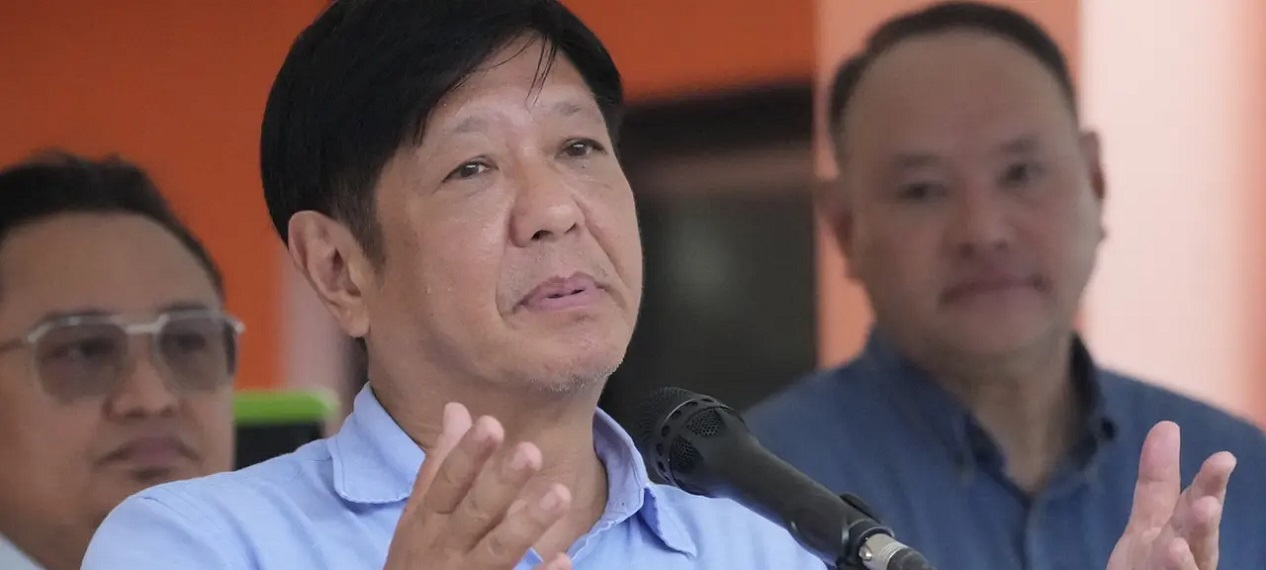“Marcos Follows the Script of His Predecessor”
Under President Duterte, thousands of people were killed in his self-declared war on drugs in the Philippines. It has been a year since his successor took office. Has anything changed in the “anti-drug war” since then?
“A Climate of Fear and Terror”
During the six-year term of former President Rodrigo Duterte, thousands of people died as a result of his self-declared war on drugs until 2022. He sent death squads, turning policemen into murderers. Duterte created a climate of fear and terror in the Philippines.
“Traces Were Meant to Be Erased”
Jenny’s brother is one of the victims of Duterte’s government. To this day, her children are traumatized. “Every time they see someone in uniform, they think someone is going to be killed again. They remember what happened to my brother and uncle,” she continues.
“Finding Comfort in Uncovering the Truth”
Jenny and hundreds of other families found solace in the Catholic priest Flavie Villanueva. He has the bodies of victims exhumed and hands them over to the country’s only independent forensic examiner. This is possible when the lease on a grave expires after five years, and people lack the money to renew it.
Through autopsies, false death certificates are repeatedly brought to light. “In our Tagalog language, there is a saying that means something like: Bones tell the truth. They show whether there was torture and intent to kill,” says Villanueva. Traces that were meant to be erased are thus uncovered.
“Continuation of the ‘Anti-Drug War’?”
For a year now, a new president has been in office: the son of former dictator Marcos, Ferdinand “Bongbong” Marcos Jr.
Jenny believes that not much has changed in the first year under Marcos: the “anti-drug war” continues unabated. Villanueva sees it differently. While the president has not officially criticized Duterte’s “anti-drug war,” he has instructed his people to stop the killings.
However, according to Carlos Conde, this message has not reached everywhere yet. Conde specializes in the anti-drug campaign. He was an investigative journalist for 20 years and now works for the human rights organization Human Rights Watch (HRW).
“14 Murders in One Week”
He says that the University of the Philippines, which tracks the violent crimes related to the “anti-drug war,” identified 14 murders during the last week of May. Attacks against activists and journalists who deal with the “anti-drug war” and its victims still occur. “Just recently, three more were killed, so nothing has changed,” he says.
According to monitoring, 322 people have been killed in the drug campaign since Marcos took office. Although significantly fewer than under Duterte, Marcos is following the script of his predecessor. Duterte estimated the number of deaths during his term to be around 6,200, but human rights groups believe the figure could be as high as 30,000.
“Only Four Convicted Police Officers”
It should also not be forgotten that more than half of the individuals involved in the murders are police officers, and only four have been successfully convicted so far, warns Conde. In the spring, the United Nations called on the Philippines to better investigate the crimes committed in the “anti-drug war.”
“Lack of Cooperation with The Hague”
The International Criminal Court (ICC) initiated investigations into crimes against humanity as early as 2018. However, the Duterte government withdrew from the court in 2018, and the new government has so far refused to allow investigators into the country.
In an interview with ARD, Foreign Minister Enrique Manalo defends this stance. He believes that the ICC is important in countries without a functioning justice system to pursue massive human rights violations. However, he argues that it is not necessary in the Philippines since the judiciary is functioning.
“No Cooperation with The Hague So Far”
“Yes, the justice system works, but only for wealthy people who can afford a lawyer,” says Conde from HRW. However, he points out that it does not work for the poor, who are the victims of the “anti-drug war.”
The activist sees the lack of proper cooperation between the current president and his government with the ICC as a tactical move. This is because former President Duterte still has many supporters who stand behind the “anti-drug campaign,” and they could pose a threat to Marcos Jr.
However, Conde can imagine that in the long run, the government will find a way to cooperate with the International Criminal Court, perhaps by the midterm elections in 2025.













































